‘No recognition, no apology’: The UK has paid just £1,003 to innocent civilians caught in war zones
An investigation by Gina Gambetta reveals that between 2016 and 2021, the UK was more likely to pay compensation to innocent civilians in Iraq, Syria and Afghanistan for a road collision than for destroying their homes
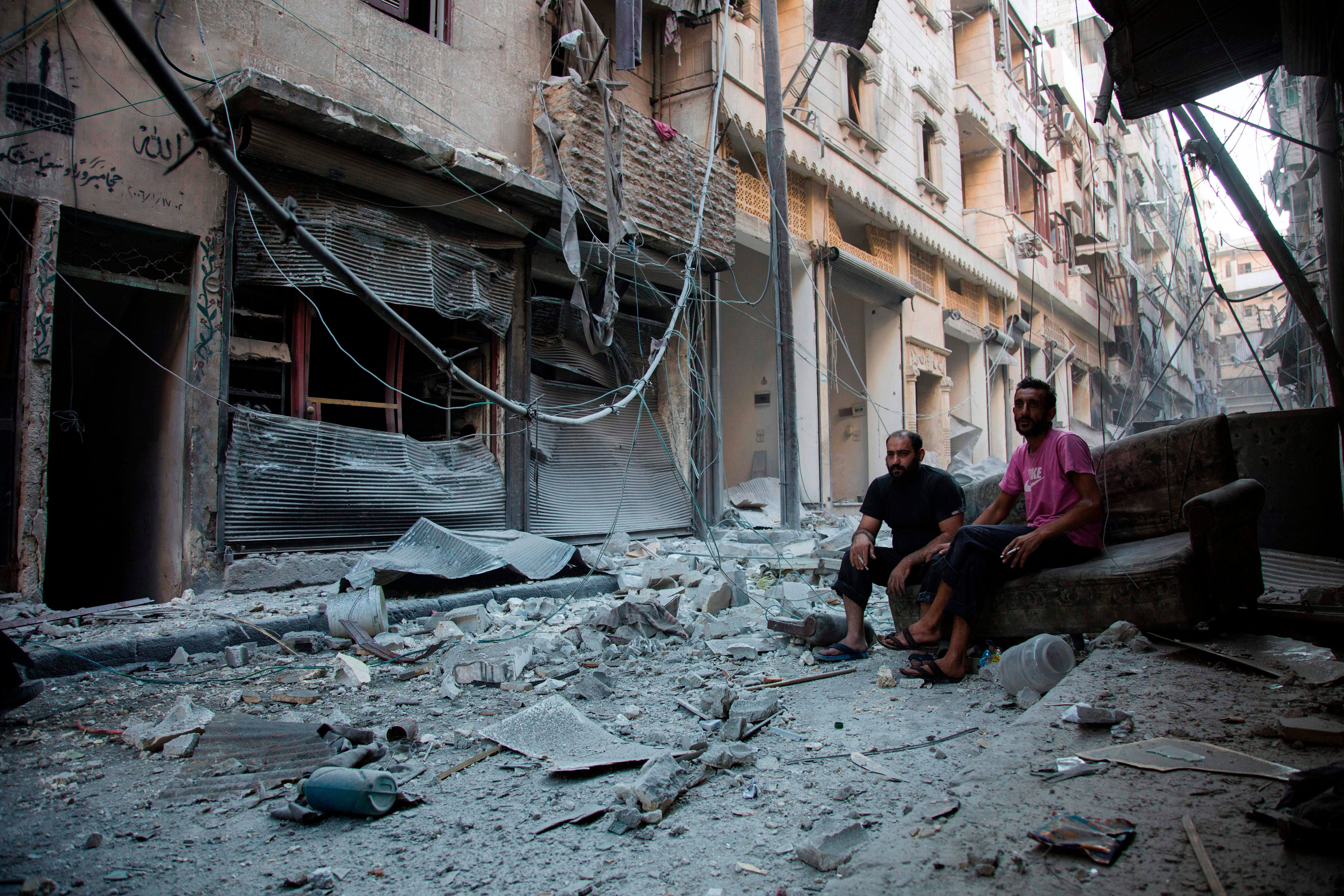
Despite the UK having been active for more than seven years in Iraq and Syria, and for two decades in Afghanistan, since 2016 civilians in those countries have been more likely to receive a compensation payment for a road accident involving the military than for innocent relatives being killed or injured by coalition airstrikes, according to freedom of information (FOI) requests made by The Independent.
Compensation payments to civilians are not the most prominent point of discussion for people in the UK when it comes to the consequences of war, but for those making the claims, they have the potential to help them rebuild their lives after experiencing serious and life-changing trauma.
Claims can be made against countries the victims believe are to blame for the destruction of their property or their livelihood, or for the deaths of family members. First, a claimant can make their case directly to the Ministry of Defence (MoD). If they have no luck there, it can be escalated to the UK courts, and if necessary it can be further escalated to the European Court of Human Rights.
“Homes and infrastructure are completely destroyed; many have been killed,” says Sumaiyah al-Haddad. “Others have lost the family breadwinner; people are displaced into different territories, and we are seeing the collapse of economies. But there is no recognition, no apology. We don’t see any glimpse of hope for their situation – it will only get worse.”
This is the reality that many Syrian people are facing according to al-Haddad, who is head of report and outreach at the Syrian Network for Human Rights, based in Hatay, Turkey. She is not describing the actions of the Assad regime or Isis, but of the US-led coalition, which includes the UK.
Her view is by no means anomalous. Civilians on the ground told Shihab Halep that “the coalition kills Isis, and they kill us in the same way”. Halep, who prefers we don’t use his real name, is himself a refugee from Aleppo and a researcher for Airwars, a not-for-profit organisation that tracks civilian casualties in major conflicts and engages with militaries to reduce deaths and injuries.
The FOI – which enquired about UK payments for property damage, injury, unlawful imprisonment, ill treatment, and/or death – revealed that just £1,003 was paid out by British forces to five Afghan civilians between 2016 and 2019 for property damage, four-fifths of which related to road traffic incidents “allegedly” involving UK military forces.
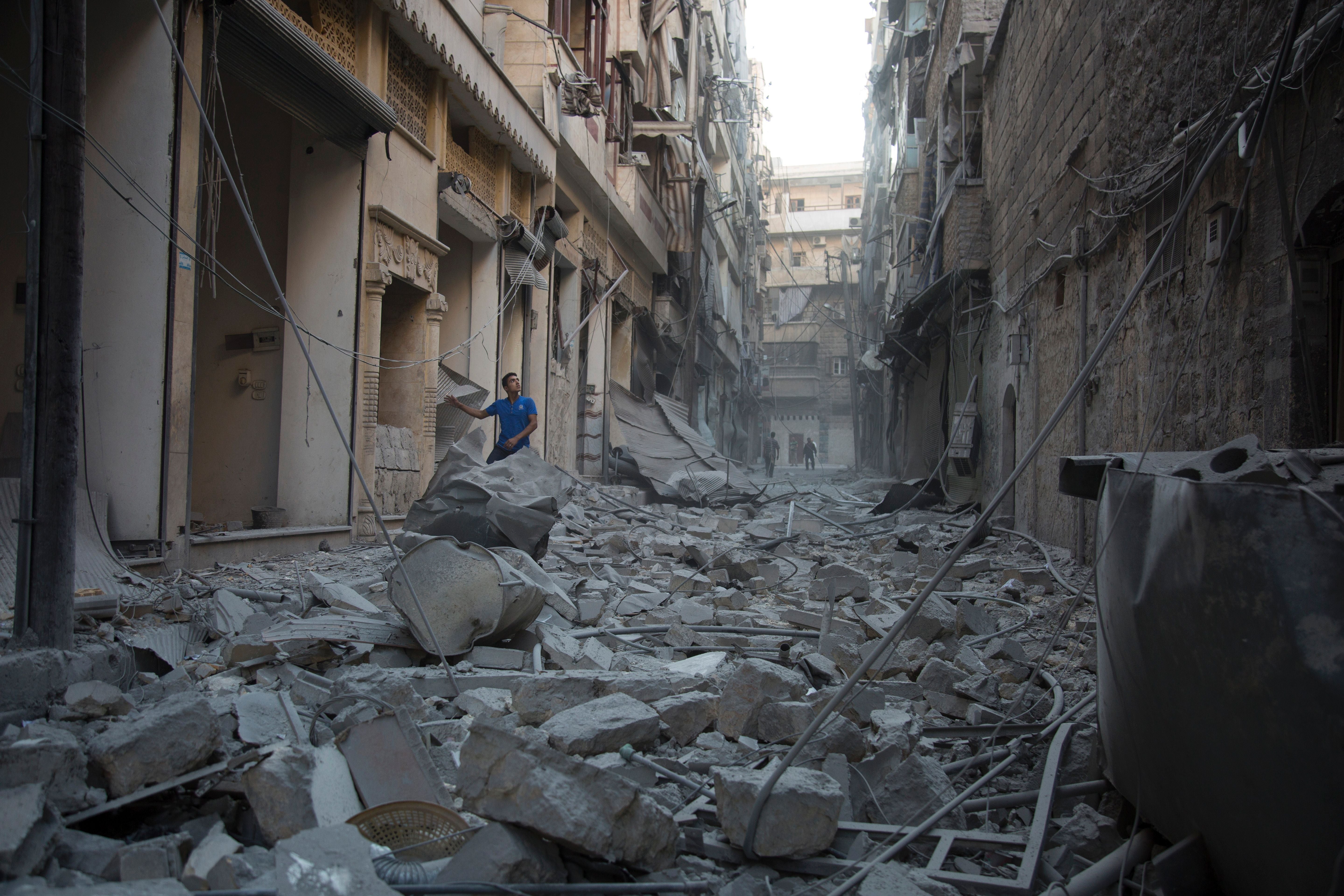
Overall, there were 43 requests for this type of payment – all of which were from Afghanistan. The MoD has refused to provide data for 2020, insisting that “all numbers less than five have been suppressed in order to reduce the possible inadvertent disclosure of individual identities”.
In comparison, according to a 2020 investigation by The Washington Post, the US military made around “$2m [almost £1.5m] in condolence payments [ex gratia payments] to civilians in Afghanistan over the past five years”.
When presented with the findings, an MoD spokesperson said: “The UK always seeks to minimise the risk of civilian casualties through our rigorous targeting processes, but unfortunately that risk can never be removed entirely.
“Just to confirm, you’re correct that no common law claims for compensation were made by Iraqi, Afghani or Syrian citizens, nor were there any requests for payments coming from Iraq and Syria. There were 43 requests (five of which were successful) for payments from Afghan citizens that allegedly arose from incidents involving UK military forces in Afghanistan.”
So why is so little paid by the UK?
“In almost every war, the British fight on the basis of protecting local civilian populations,” says Chris Woods, founder and director of Airwars. “Yet these same civilian populations have almost no possibility of securing a proper explanation and recompense from the UK should things go wrong.”
These perhaps little-known compensation claims can be made in war zones when damage has been done in terms of life or property, and the person making the claim is a civilian – that is, an innocent person affected by war.
The MoD’s FOI response uses this wording: “Requests for payment received from citizens with regard to incidents allegedly involving the UK military forces”. The use of “allegedly” suggests that this refers to ex gratia payment requests, which the UK has in the past provided to civilians in conflict zones.
The Latin phrase ex gratia means “by favour”. These payments, therefore, do not serve the purpose of admitting fault; instead they merely express condolences or sympathy for the victim. However, the MoD’s spokesperson said they wouldn’t be able to confirm whether or not these payments were indeed ex gratia (or something equivalent to it). Similarly, a recent report by an NGO, Ceasefire, noted that civilians could also sue for reparations by bringing a complaint to the European Court of Human Rights.
How can any civilian in Iraq or Syria ever have a chance of making a common-law compensation claim for the death of a relative, when in the eyes of our military, only one civilian has been killed by us?
Further investigations reveal how much the UK has paid out in the past. The Times reported in 2015: “The Ministry of Defence has paid out more than £27m in compensation to Afghan and Iraqi citizens caught up in Britain’s military operations.”
The reasons for the payouts included minor injuries, damage to property, road accidents, and compensation for the deaths of family members. By 2015, compensation payments for civilians totalled £21.7m in Iraq and £5.2m in Afghanistan.
Focusing specifically on Afghanistan, recent research by Action on Armed Violence found that, between 2006 and 2013, “£688,000 was paid out by the British military for 289 deaths”.
It seems clear, therefore, that payments have been made in the past on a much larger scale, so why since 2016 has this reduced to around £1,000 paid out over a period of four years?
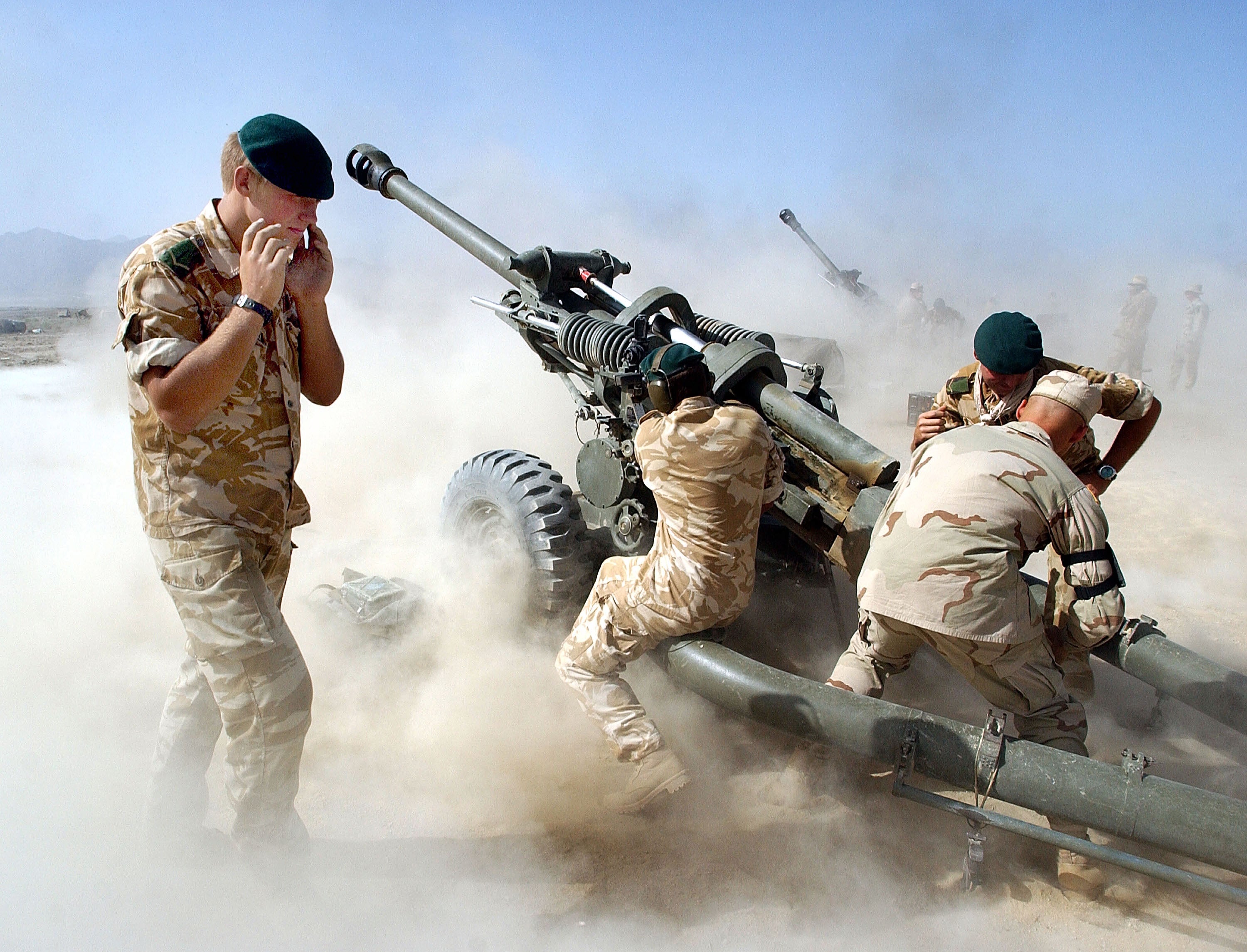
When you look at recent history, payments to civilians have proved to be controversial in the UK. For example, it took eight years for the 2003 death of Baha Mousa in Basra, Iraq, to be properly investigated, for the conviction of a British soldier to be secured, and, eventually, for £2.8m to be paid in compensation to the victim’s family.
“It was emblematic of the system at the time,” Andrew Williams, whose book A Very British Killing: The Death of Baha Mousa, tells me. “It was representative of a whole political and legal structure that wanted to not only ignore, but avoid scrutiny.”
Two incidents that occurred in 2016 and 2017 arguably worsened the situation: the fall of human rights lawyer Phil Shiner, and the collapse of the Iraq Historic Allegations Team (IHAT), which had been set up to investigate claims of abuse of Iraqi civilians by UK armed forces.
Williams believes that, following these controversies, “the defensive lines were really drawn up by the government; the whole process of compensation culture became the target. The lawyers became the problem, not the violence and harm done in the first place.”
In her 2016 keynote speech to the Conservative Party conference, the then prime minister Theresa May pledged: “We will never again – in any future conflict – let those activist, left-wing human rights lawyers harangue and harass the bravest of the brave.”
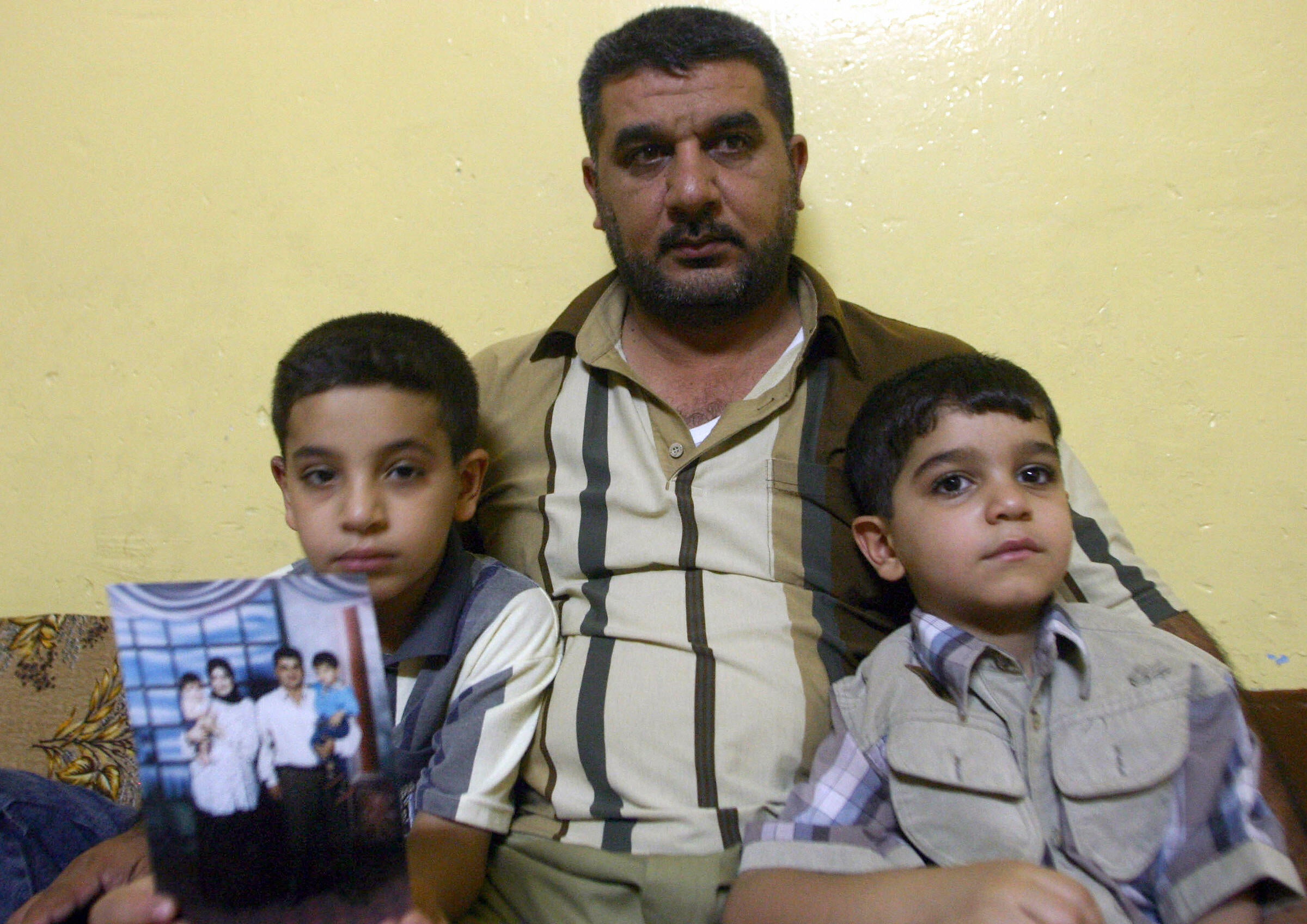
Parts of the UK media appeared to echo this sentiment from the top. For example, the Daily Mail was seen to chastise the “ambulance-chasing” lawyers for conducting “witch hunts” against “war heroes”. Prior to the above incidents, in 2015, it also reported that “British taxpayers are being forced to pay millions of pounds of compensation” for foreign civilians, and in 2008 it published a piece titled “£2m for shot Iraqi boy, just £285,000 for a crippled Para.”
And it seems that the perceived definition of “civilians” also shifted: “Not only was it viewed as unpatriotic to raise these claims,” says Williams, “but also the people who are claiming it are the enemy. The [underlying] attitude was a sense that they were still the enemy, the enemy without arms. They were the enemy in trying to graft out wrongful compensation.”
In April last year, the Overseas Operations (Service Personnel and Veterans) Act was passed, imposing a five-year limit – except in “exceptional circumstances” – on prosecutions being brought against soldiers’ actions abroad, as well as a “longstop” to prevent claimants bringing human rights or civil litigation claims for personal injury or death more than six years after the event.
Woods raises concerns about this: “Any attempt to put a time limit on civilians seeking restitution or reconciliation is highly problematic. New evidence comes to light all the time. To put this arbitrary cap on surviving family members being able to seek restitution makes no sense.”
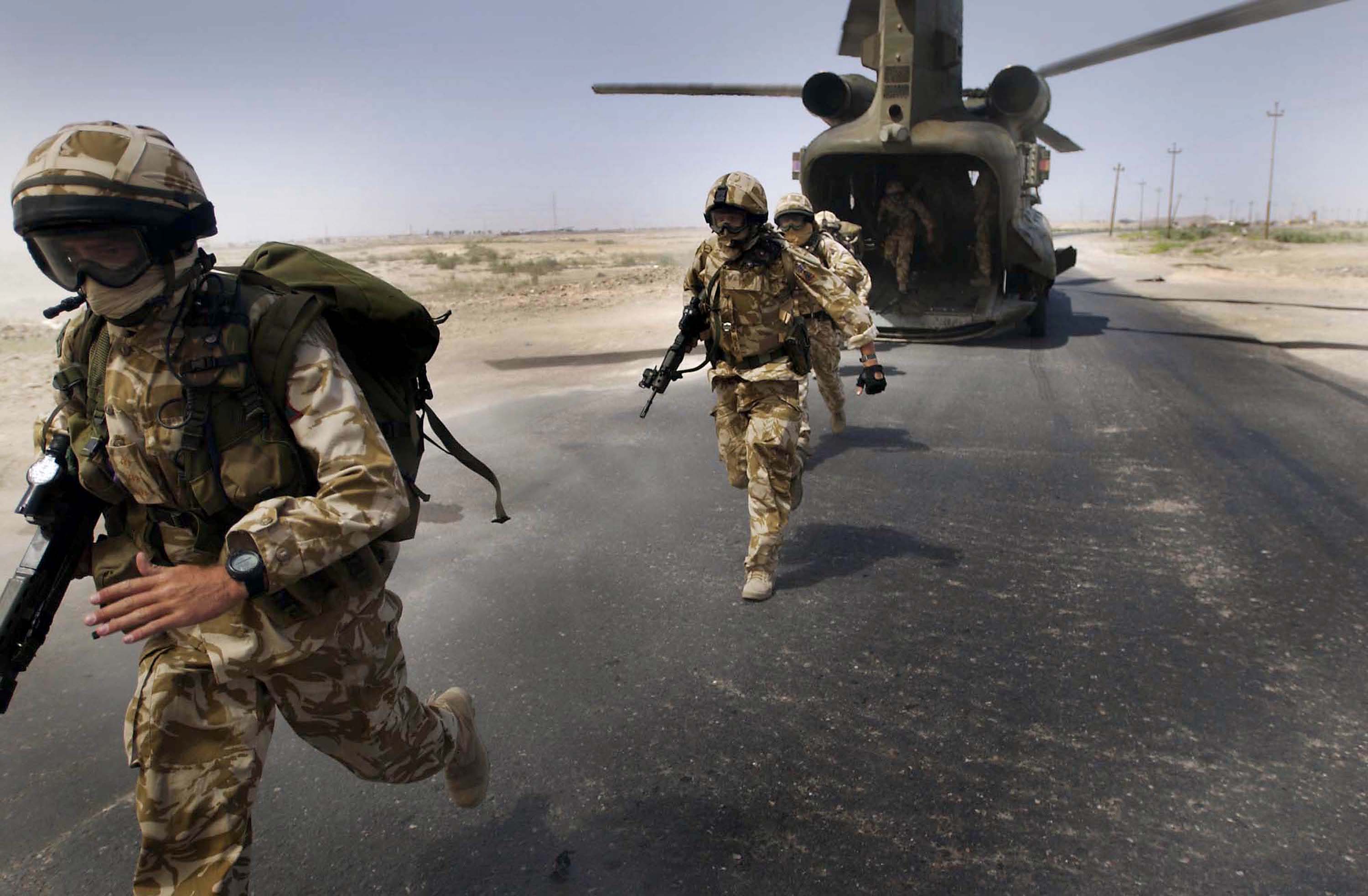
In response to such criticisms, the MoD spokesperson said: “Last year, we introduced a measure in the Overseas Operations Act to ensure that civil claims arising from overseas operations are brought promptly and dealt with more fairly.”
Clearly, payments to civilians can prove to be a polarising topic that transgresses views on foreign civilians, national identity, and the lines of responsibility in warfare operations. And arguably, the systems in place, and those governing them, are increasingly problematic.
When it comes to MoD payouts made to UK servicemen and women, on the other hand, the Daily Mail reported last year that since 2013, 3,730 payments, totalling £48.6m, had been made under the Armed Forces Compensation Scheme, which is “designed to provide compensation, irrespective of fault, across the full range of circumstances in which illness, injury or death may arise as a result of service”.
In terms of common-law compensation requests, the FOI response agreed with the MoD spokesperson that none had been made from Syria, Iraq, or Afghanistan.
This could, of course – like the relatively small number of requests relating to the “alleged” involvement of UK forces – represent a lack of demand on the part of civilians. However, the wording of the common law system, in particular, suggests it could potentially be down to the almost insurmountable barriers to making a claim.
“It is incumbent on [the claimants] to prove that, on the balance of probabilities, any alleged injury, damage or loss suffered arose from negligent acts or omissions on the part of the Ministry of Defence, its servants or agents,” explained the FOI response.
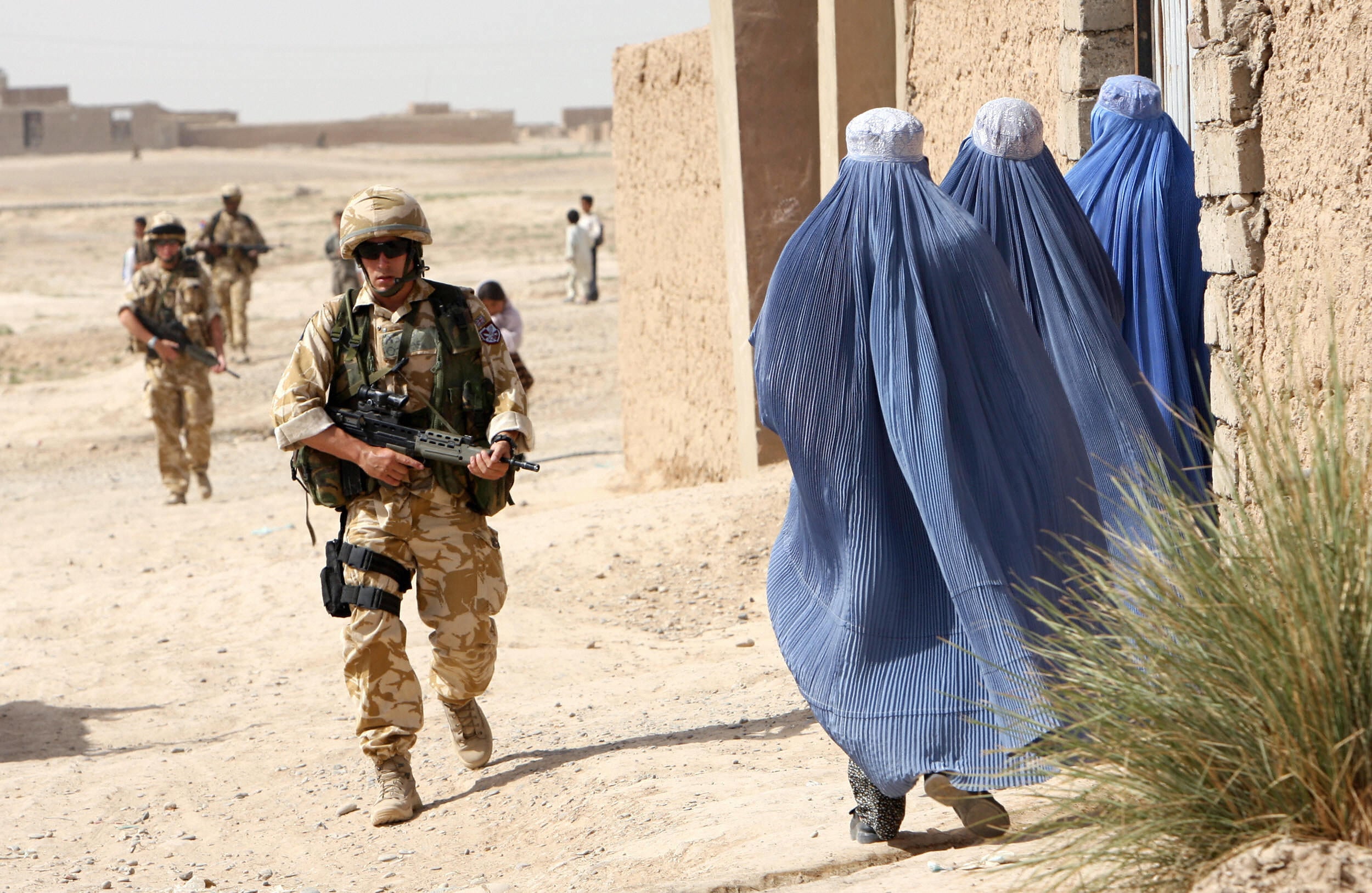
Legal jargon aside, this appears to place the responsibility for seeking redress solely upon the victims. Exactly how traumatised survivors in faraway nations are supposed to know how to go about making a claim in our jurisdiction, let alone prove negligence or “omissions”, is unclear.
“The ministry is fiercely resistant to any kind of meaningful accountability or oversight, especially judicial oversight,” says Eric Metcalfe, a human rights barrister, when describing the MoD’s approach. “It has little time for lawyers, and is typically indignant at the prospect of having to pay out for harming civilians – or even its own soldiers.”
The MoD’s spokesperson explained that the amount of compensation paid is determined by legal principles, which consider the degree of injury, and past and future losses, while also reflecting local customs and practice. “Settlements are comparable with practices adopted by other nations involved in overseas conflicts,” they said.
They added: “Providing restitution for civilians who have suffered in these circumstances is the right thing to do, and where there is a proven loss and liability to do so, compensation is paid.”
On burden of proof, they explained that this isn’t applied solely by the MoD, but is applied generally to claims brought under common law.
Alongside the extreme circumstances in which potential claimants live, another barrier to civilians seeking payments could be militaries denying the effects of their own strikes. Airwars estimates that between 8,306 and 13,174 civilians are likely to have died due to the actions of the US coalition in Iraq and Syria – though the coalition concedes only 1,417 such deaths. The UK itself has admitted to only one civilian death resulting from seven years of airstrikes in Syria and Iraq.
How can any civilian in Iraq or Syria ever have a chance of making a common-law compensation claim for the death of a relative, when in the eyes of our military, only one civilian has been killed by us?
Another consideration is whether, by predominantly using airstrikes to conduct military operations – like many other western nations – as well as the strategy of coalition fighting, the UK may have hindered the chances of civilians pursuing claims.
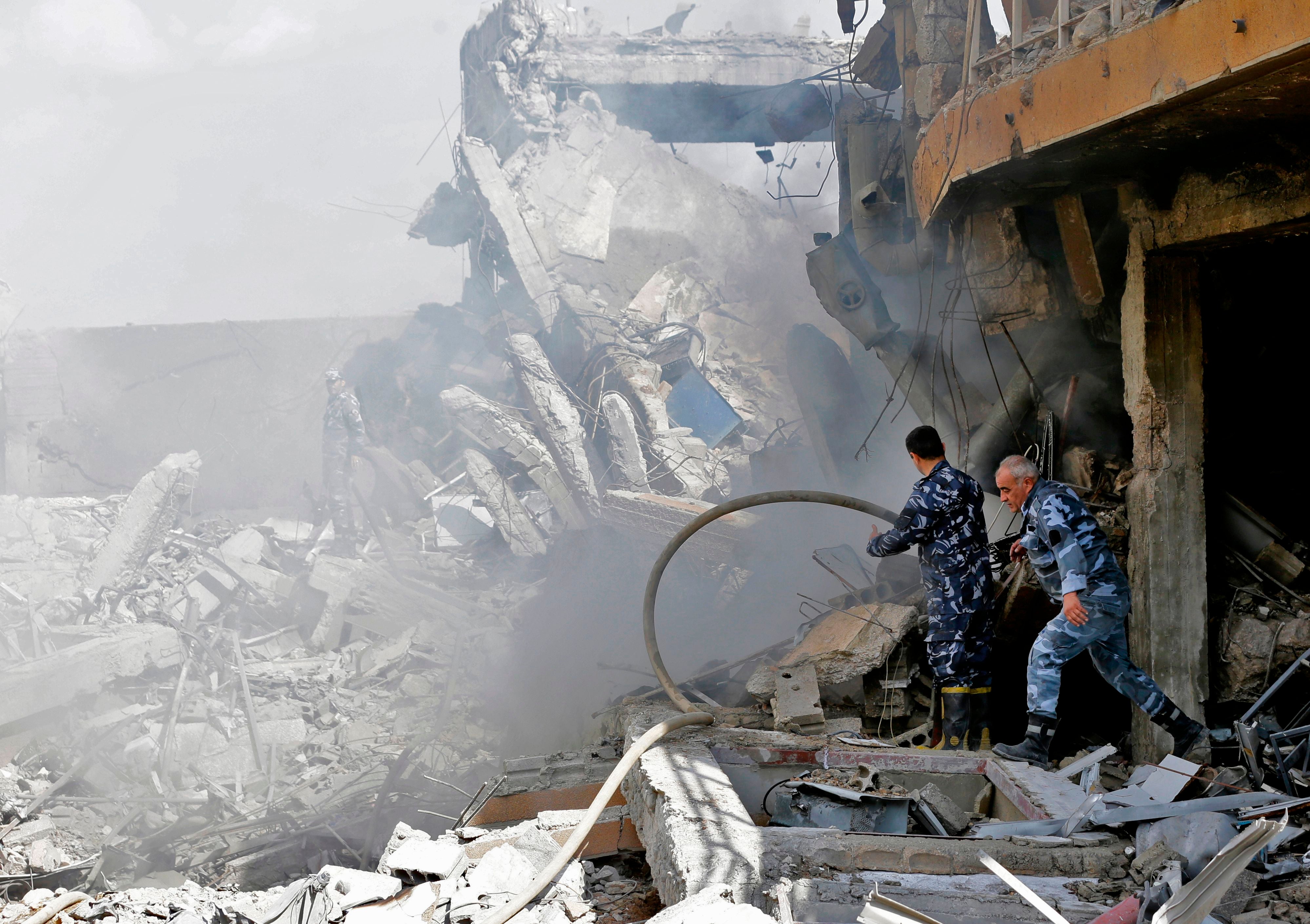
Already the negative impacts of reporting harm and designating responsibility have been put forward, and considering admittance of harm is a key prerequisite of being able to make a payment claim and push for justice, it would be fair to say that these strategies are likely, at least indirectly, to have had a detrimental effect here, too.
Indeed, Ceasefire’s report pointed to the UK, US, and other forces shifting away from boots on the ground, and making accountability for civilian harm harder to establish. “The result is an increase in the practical and legal challenges faced by civilians, typically members of vulnerable and disempowered communities in fragile states, in accessing reparations and asserting their rights,” said the report.
Going further, Andrea Prasow, former deputy director of Human Rights Watch’s Washington DC office, questions whether there is potentially less of a will to provide compensation when there aren’t as many troops on the ground: “If you had a bunch of hostile civilians who might kill your soldiers, you have to make them not so hostile” – in other words, if the need to consider one’s own soldiers is reduced, so is the necessity of keeping disgruntled civilians happy in the short term.
An additional issue with coalitions is that different countries may value life and limb differently, or have different systems in place. The UN has expressed support for standardisation to tackle this. This would mean, as former US military commander Dr Chris Kolenda puts it: “You don’t get X amount from the US, but Y amount from the UK.”
To complement this, Kolenda suggests there could be a centralised pool of funds within a military coalition to pay out claims – and that the amount a nation contributes could be based on the proportion of their air support. This financial burden, he believes, helps encourage stronger accountability in regard to civilian casualties.
Frustratingly, no definitive conclusion can be drawn as to why the figures are so low. In fact, a bigger and more important question – which doesn’t just relate to the UK – needs to be asked: is money even the correct mechanism to provide for affected civilians in these circumstances?
In the short term – at least – payments can be used to help rebuild homes, pay funeral costs, and assist with a loss of earnings.
However, the extent to which civilians can begin materially to rebuild their lives is highly dependent upon the amount provided. For example, Airwars spoke with people who had lost 36 members of their family in a joint US-Australian airstrike in Mosul, Iraq, in 2017. Australia has a cap of $2,500 in payments per victim. As one person noted: “Today I fixed my car in Mosul and paid $500 for my car repairs. So $2,500 is a very insulting sum, and does not properly value a life.”
Monetary reconstruction packages can also be provided to communities to help rebuild local infrastructure and services that have been devastated. The Dutch government, for instance, is currently putting together a €4m (£3.3m) package for the city of Hawijah, Iraq, following a 2015 airstrike that devastated much of the city and killed at least 70 civilians.
For many survivors and relatives, no amount of money can ever truly compensate for the personal losses and traumas experienced. Airwars’ Syrian researcher, Halep, notes that when he speaks with civilians, they often stress that they want accountability and justice.
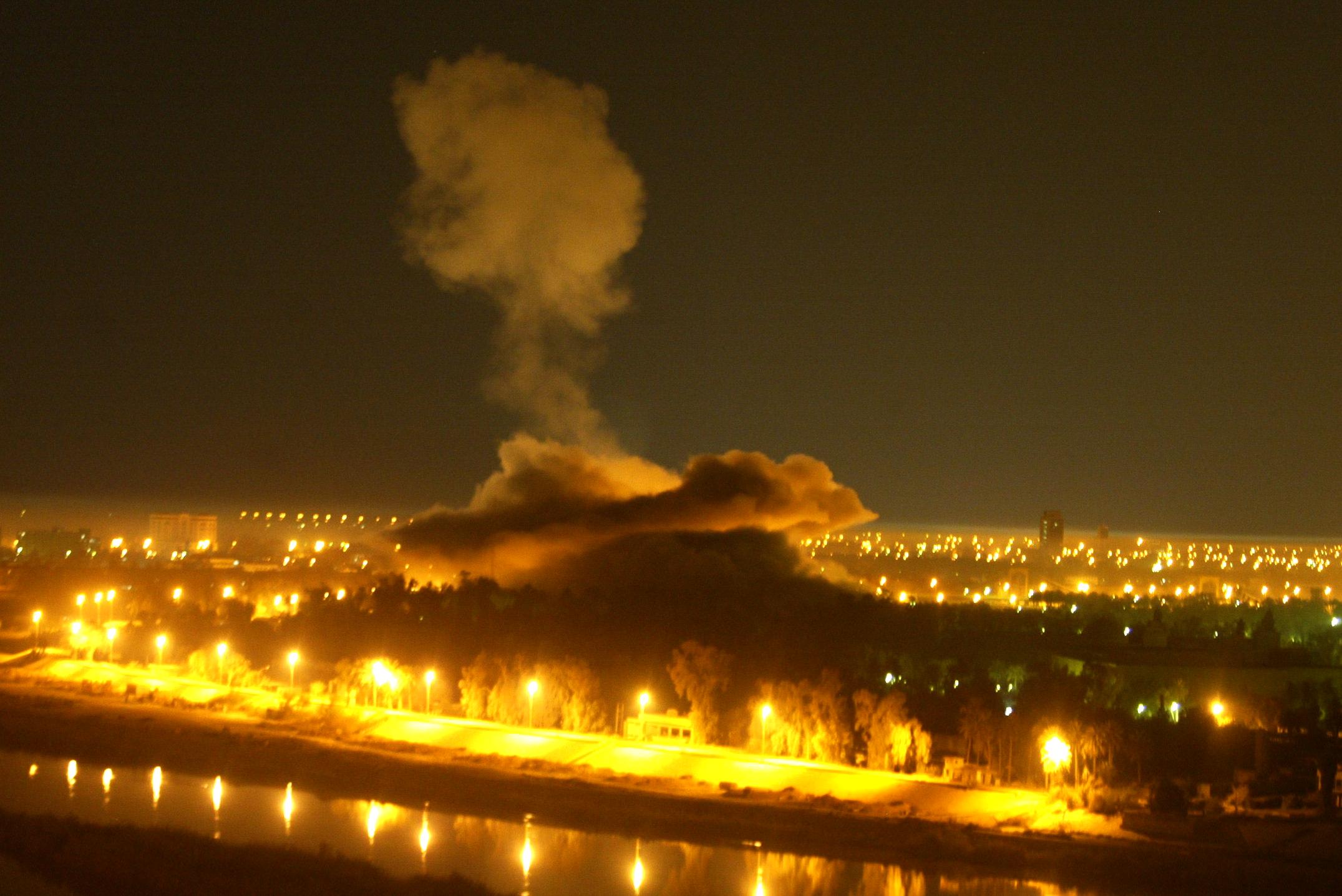
He also says civilians want to feel that the coalition came to stop Isis because they want to help the people – not just because they want to stop Isis getting bigger and attacking their countries. This perception could be fostered by countries taking on greater accountability when harm is caused.
“If we think of it through our own eyes and experiences, what would we want? We would want to know the truth. We would want to know what went wrong,” says Woods.
In the long term, payments without accountability can have deeper implications – that of reducing civilians, and their harm, to costs incurred as part of the general war-fighting budget.
I believe if a minister was to read out in parliament a report that described these instances of dead civilian men, women and children, it would humanise these people who have been killed
Expanding upon this, Emily Gilbert, a conflict expert and professor at the University of Toronto, argues that “rather than subjecting war’s violence to debate, scrutiny, and accountability, money deflects the highly political questions about the place of injury and death in war and accepts that they are its inevitable outcome. It continues to render some populations surplus.”
Eerily embodying this, a US government purchase order-invoice-voucher from June 2005, describing a condolence payment made in Afghanistan, reads: “Supplies and services: Death of Wife / Qty: 1 / Unit Price: $2,500”.
“If the intent is really to reduce harm, then dehumanisation is not the solution,” Gilbert tells me.
A lack of transparency and accountability can also negatively affect civilians’ perceptions of foreign armies. As Dr Lauren Gould, assistant professor in conflict studies at the University of Utrecht, explains: “We’re just sowing the seeds for the next round of violence, because it creates a lot of grievances. Although maybe we don’t see the destruction that takes place, the people living under the bombs know exactly what’s happened and often who carried out the attacks.”
When considering this relationship between civilians, money and accountability, what can be done moving forward, in the UK at least? Although no approach will ever be able to fully erase the long-lasting physical and/or psychological damage civilians face, it seems clear that the current approach by the UK is not sustainable, or moral.
In my opinion, a root and branch review is needed to radically overhaul the system.
For Williams, before we can discuss payments we need to tackle the preliminary issue of accountability, by looking beyond domestic views of criminality – the idea of searching for one perpetrator – and examining more broadly the context of operations. This, he says, harks back to the mistakes of IHAT, which, rather than assessing whether allegations related to systematic issues within the MoD, appeared to target individual soldiers only.
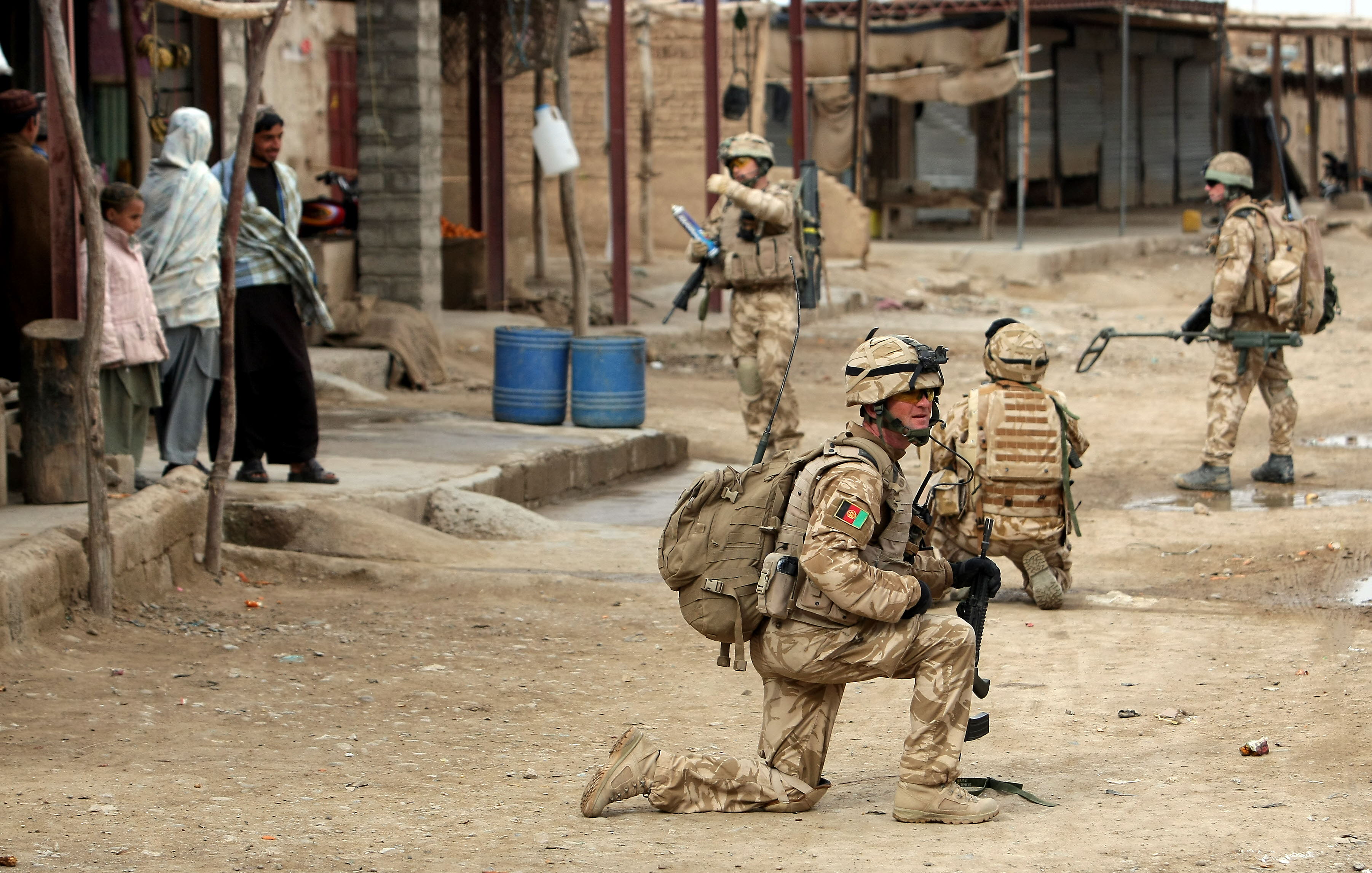
Similarly, barrister and former military officer Frank Ledwidge stresses: “There needs to be a strategic shift applied in the way we think about these insurgency wars. You need to start treating people formally as your priority. So, you don’t just say ‘protect the people’, you do it, and then this concern will be reflected in the way you deal with those [to whom you have caused harm].”
Regarding the question of who should conduct investigations, Williams believes it must be an independent body, with individuals possessing a range of expertise – and not ex-police officers and military lawyers, as used by IHAT – “so in effect you are satisfying the Daily Mail and TheGuardian.”
Transparency for and from those in charge is also crucial, according to Peter Lee, professor of applied ethics at the University of Portsmouth. Through his unprecedented research with the RAF Reaper squadrons, Lee explains that operators are very aware of, and affected by, the human cost of strikes – it is at the higher military and political levels, for example within the cabinet, that the biggest psychological distancing occurs.
“I believe if a minister was to read out in parliament a report that described these instances of dead civilian men, women and children, it would humanise these people who have been killed – it would be giving the names back to those who are often nameless – otherwise they just become this financial figure.”
Lee believes that, with greater awareness and openness, when parliamentarians make or vote for future decisions to use military force, they could do so in the knowledge that they cannot mentally or emotionally distance themselves. “So in other words, they should own what they do and share the sleepless nights,” says Lee.
Bureaucracy aside, for Halep, it boils down to civilians needing fair and open access to justice and accountability, compensation payments, and community reconstruction programmes. “All are needed. What’s the point if you have money but your city is destroyed? Three years on, many of Raqqa’s neighbourhoods still have no electricity.”
Concurring, Ceasefire’s report recommended that the UK take a holistic approach that also takes into account the obligation to provide restitution, rehabilitation, satisfaction and guarantees of non-repetition, as well as compensation. “The right to reparation includes the right to the truth,” it said.
The report also emphasised the need – particularly in places where physical presence is reduced – for “a clear process and mechanism through which civilians can make a compensation claim for property damage, personal injury and death, and information on the process disseminated and available in local languages”.
Likewise, it suggested, a civilian harm compensation scheme should be established to enable the effective processing of claims.
Going beyond system reform, for al-Haddad there is a crucial political role that she claims foreign powers have not played sufficiently, which could provide stability to victims and may be a step towards justice. “I am talking about removing the Assad regime. Once this changes, everything else might be able to start moving away from destruction into some form of hope in the future.”




Join our commenting forum
Join thought-provoking conversations, follow other Independent readers and see their replies
Comments